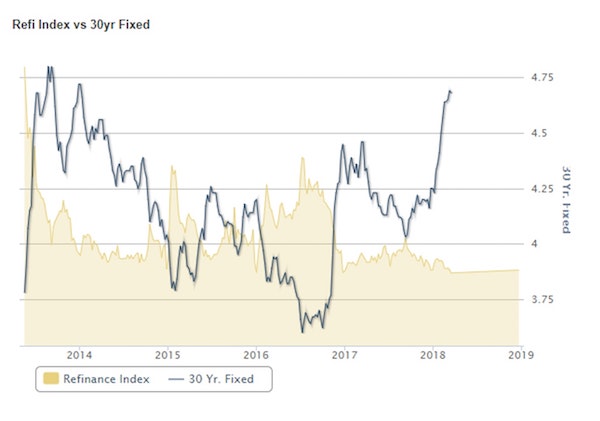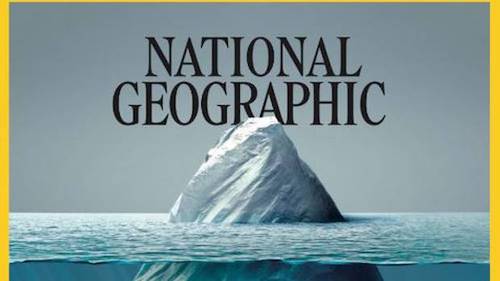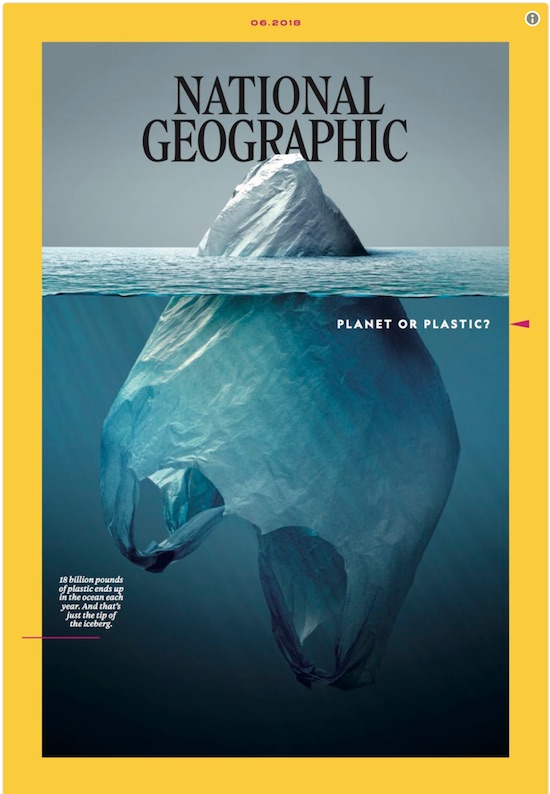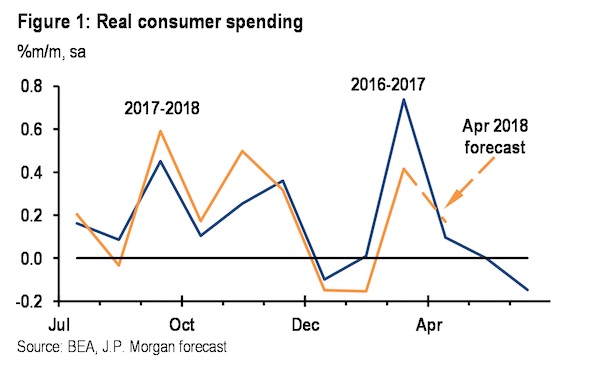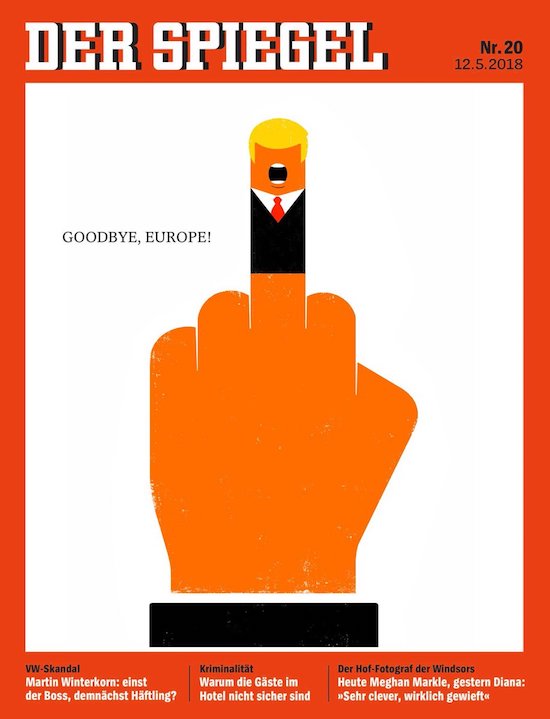
Giuseppe Arcimboldo Four elements – Earth 1566

This is true all over the western world. But finding alternatives is daunting. And that’s how you get to pitchforks.
• Over Two Thirds Of UK Public Don’t Feel Represented By Political Parties (Ind.)
More than two thirds of the British public feel they are not represented by the main political parties, according to a new report on the divisions caused by Brexit. Research by campaign group Hope Not Hate found that the disconnect had increased from 60% to 67% over the last six months as Theresa May negotiated the EU withdrawal agreement. The poll of nearly 33,000 people and results from focus groups also revealed that many felt they were being left in the dark or were “overwhelmingly bored” by the process. It has also seen an increase in the proportion of the public feeling pessimistic about the future – with very few believing that Brexit will address the frustrations and inequalities that lay behind the vote to leave the EU in 2016.
More people also believe that Brexit is feeding prejudice and division and taking the UK “backwards”, up from 57% in July 2018 to 62% last month. Just 20% of people said they could trust the government to deliver a “good Brexit”. Almost as many Leavers (66%) as Remainers (75%) said they do not trust the government to deliver a Brexit that works for them. None of the options being considered by parliament have consensus support across the UK, according to the report, and 42% of people think that it would be sensible to delay leaving the EU by a few months so we can agree a better deal with the EU or hold a Final Say vote.
Hope Not Hate suggested the deadlock could be broken by holding “citizens’ assemblies”, which have been used successfully in Ireland and Iceland. They are made up of a randomly chosen representative group of up to 1,500 people and hear evidence and argument on a subject before making recommendations to their political representatives. Citizens’ assemblies are “a less polarising choice” the report states, with 39% of people, including both Leave and Remain supporters, saying they would back this process given the political deadlock.

“..we need to have a stable majority to ensure the ratification. That’s quite a big challenge. There’s no negotiation between the UK and EU – that’s finished.”
• Risk Of Accidental No-Deal Brexit ‘Very High’ – Key EU Negotiator (G.)
The risk of accidentally crashing out of the EU without a deal has been described as “very high” by a key EU architect of the Brexit deal, with parliamentary backing for changes to the backstop likely to be met with a brick wall in Brussels. Senior Conservative MPs are seeking to form a majority in a Commons vote on Tuesday calling for Theresa May to demand an alternative plan to the Irish backstop for avoiding a hard border on the island of Ireland. But on Monday, EU officials and diplomats said the amendment tabled by the Tory MP Graham Brady, and backed by Downing Street, failed to offer any clue as to what alternative arrangement parliament could support.
With the votes on Tuesday unlikely to offer any clarity on what MPs can unite behind, the EU’s deputy chief negotiator, Sabine Weyand, offered a sober analysis of the chances of a deal being ratified in Westminster. She said: “We need to have a majority that doesn’t just get agreement over hurdle of a meaningful vote by a narrow majority but we need to have a stable majority to ensure the ratification. That’s quite a big challenge. There’s no negotiation between the UK and EU – that’s finished.
“There’s no point beating about the bush – the agreement was defeated with a two-thirds majority in the House of Commons. That’s a crushing defeat by any standards. It’s quite a challenge to see how you can construct out of the diversity of opposition a positive majority for a deal.” Weyand said of the two years of talks due to end on 29 March: “There’s a very high risk of a crash out not by design, but by accident. Perhaps by the design of article 50, but not by policymakers.” “We think we can handle it,” Weyand said. “I’m less sure about UK side. For us it’s about EU-UK trade relationship and disruption to supply chains. For the UK a no deal would mean that a part of the regulatory and supervisory structure of economy breaks away – a much bigger challenge.”

British people must be so sick of this. More ‘key’ votes today, and no end in sight.
• Will UK MPs Take Control Of Brexit? (RT)
Later on Tuesday, backbench MPs will try to seize control of Brexit as they vote on a set of amendments to alter – or even stop – the UK’s exit from the bloc after PM Theresa May failed to get her deal through parliament.
Speaker John Bercow reportedly received 14 amendments to May’s Brexit deal, with half a dozen of them expected to be put to a vote in order to achieve Brexit Plan B. Voting is scheduled to start at 7pm and may go on until around 8.30pm. By that time, it’ll likely become clear whether Brexit will be paused, possibly indefinitely, or whether the embattled prime minister will be sent back to Brussels for more talks with the EU.Proposals to prevent a NO-DEAL Brexit One of the most important amendments comes from Labour’s Yvette Cooper, which requires May to delay Brexit and extend Article 50 if she’s unable get parliamentary support for her deal by February 26. Another notable one is much softer and non-binding in nature. Tory MP Caroline Spelman and her Labour counterpart, Jack Dromey, are pushing for the “no-deal” concept to be rejected in principle.
Anti-backstop amendments The two key proposals here are from Tory backbenchers, Andrew Murrison and Graham Brady, chair of the influential 1922 Committee, responsible for hiring and firing Conservative leaders. They call for the contentious Irish backstop to expire by December 2021 or be removed from the Brexit deal altogether. The backstop is a safety net to avoid a hard border between Northern Ireland and the Republic of Ireland if there’s no Brexit trade deal.
Indicative vote amendments These are focused on ensuring that MPs get more parliamentary time to discuss the kind of Brexit they want to see agreed. Labour MP Hilary Benn has one amendment explicitly demanding indicative votes on Brexit options, including Norway Plus, a Second referendum, a “managed” no-deal, or a Labour Brexit. Prominent Tory Remainer, Dominic Grieve, is also calling for six days in February and March to be set aside for debates on motions not selected by the government. May’s spokesman said on Monday that talks on changing the deal to make it satisfactory for the MPs were ongoing. The PM was also willing to give the parliament another opportunity to vote for the Brexit deal as soon as possible. He didn’t name the exact date, buy the Sky News sources claim it may happen on February 13.

The people’s interest?!
• Theresa May In Fresh Crisis After Anti-EU Tories Reject ‘Plan B’ (Ind.)
Theresa May has been plunged into a fresh Brexit crisis after anti-EU Tories rejected her ‘plan B’ attempt to rescue her deal and threatened to inflict another Commons defeat on Tuesday. The prime minister took the extraordinary step of urging her MPs to back an amendment that “requires the Northern Ireland backstop to be replaced” – even though it effectively rips up her own agreement with the EU. However, just 30 minutes earlier – in a dramatic underlining of her weakness – the hardline 60-strong European Research Group (ERG) rejected the wording as too vague. Without ERG support, the amendment, tabled by Tory backbenchers’ leader Graham Brady, appeared doomed to fail – wrecking No 10 hopes that it would persuade the EU to give way.
Even before the setback, Brussels made clear it would, in any case, never accept a UK demand to replace the backstop, insisting the EU was “not going to reopen the agreement”. Heidi Allen, a leading pro-EU Tory, said the prime minister was “dreaming” if she believed her strategy could succeed, telling The Independent: “She is doing nothing other than pandering to the ERG again.” Despite the continuing stalemate, Ms May told the emergency meeting of Tory MPs that she wanted to stage a second “meaningful vote” on her deal by 13 February. No 10 saw it as a mechanism of sending a clear message about the concessions the EU needed to make if the thumping 230-vote defeat on the divorce deal, a fortnight ago, is to be overturned.

The UK government, who obviously have nothing better to do, wants to confiscate Venezuela’s gold. Time for every country to repatriate their gold. Or it can and will be used against you.
• Bank Of England Urged To Give Juan Guaidó Venezuela’s Gold (G.)
A UK foreign office minister has suggested that the Bank of England grant access to £1.2bn in Venezuelan gold reserves to the self-proclaimed interim leader Juan Guaidó rather than Nicolás Maduro. In a statement to British MPs, Sir Alan Duncan said the decision was a matter for the Bank and its governor, Mark Carney, and not the government. But he added: “It is they who have to make a decision on this, but no doubt when they do so they will take into account there are now a large number of countries across the world questioning the legitimacy of Nicolás Maduro and recognising that of Juan Guaidó.” Guaidó has already written to Theresa May asking for the funds to be sent to him.
The former chair of the foreign affairs select committee Crispin Blunt said the current Venezuelan central bank president was not legitimate, since he had not been appointed by the country’s national assembly. Blunt has sent letters to the foreign secretary, Jeremy Hunt, and to the chancellor, Philip Hammond, urging a decision. Duncan said Hunt would be discussing the next steps in the European Union’s efforts to support Guaidó in Bucharest on Thursday. Key EU states including France, Germany, Spain and the UK on Saturday urged Maduro to call free and fair elections within eight days or else see Guaidó recognised as interim president by the international community. The EU stance was backed by the SNP and the Liberal Democrats in the Commons.

Bolton: “Now is the time to stand for democracy and prosperity in Venezuela..” Straight faced.
• US Announces Sanctions Against Venezuela State Oil Company (G.)
The Trump administration has tightened the screws on Venezuela’s embattled president, Nicolás Maduro, announcing sanctions against the country’s state-owned oil giant PDVSA in what the US national security adviser admitted was partly an attempt to counter strategic threats from Cuba and Iran. At a briefing in the White House, the US treasury secretary, Steve Mnuchin, told reporters the sanctions would help punish “those responsible for Venezuela’s tragic decline” and boost Juan Guaidó, the opposition leader who last week declared himself Venezuela’s rightful interim president and was recognized by the United States. “It is a complete tragedy to have a humanitarian crisis in a country that has very rich resources,” Mnuchin said.
The sanctions – which represent the US’s toughest economic move against Maduro to date – come five days after Guaidó’s dramatic declaration sparked Venezuela’s latest political crisis. The national security adviser, John Bolton, said $7bn of PDVSA assets would be immediately blocked as a result of the sanctions while the company would also lose an estimated $11bn in export proceeds over the coming year. Bolton said the sanctions were an attempt to alleviate “the poverty and the starvation and the humanitarian crisis” currently gripping the South American nation and stop “Maduro and his cronies” looting the assets of the Venezuelan people. “Now is the time to stand for democracy and prosperity in Venezuela,” he said, calling on “all responsible nations” to back Guaidó.
However, he also conceded US strategic interests were in play, including concerns about the presence and activities of US foes in the region. “We think stability and democracy in Venezuela are in the direct national interests of the United States right now,” Bolton told reporters. “The authoritarian regime of Chávez and Maduro has allowed the penetration by adversaries of the United States, not least of which is Cuba.” He added: “Some call the country ‘Cubazuela’, reflecting the grip that Cuba’s military and security forces have on the Maduro regime. We think that is a strategic significant threat to the United States and there are others as well, including Iran’s interest in Venezuela’s uranium deposits.”

Wonder what Putin and Xi are thinking. And doing.
• Why Did John Bolton’s Notepad Say “5,000 Troops To Colombia”? (ZH)
During a Monday White House press briefing national security adviser John Bolton was photographed carrying a notepad — presumably as he was fresh out of a national security meeting — and one of the things which appears to be handwritten on the pad is “5,000 troops to Colombia”. The contents of the notepad were spotted almost immediately by multiple journalists online after an NBC news release featuring the AP photo was published. More precisely the full contents appear to read: “Afghanistan -> Welcome the Talks. 5,000 troops to Colombia.” And a closer look, per one of the first journalists to examine the photograph and writing, who noted that “if confirmed this would be a pretty terrible OPSEC [operations security] breach”.

Bolton during the White House presser revealed that President Trump is “leaving open the possibility of a U.S. military intervention to protect opposition leader Juan Guaidó, members of the nation’s assembly and American diplomatic personnel,” according to NBC. “The president has made it clear that all options are on the table,” Bolton told reporters while holding the yellow notepad. “We also today call on the Venezuelan military and security forces to accept the peaceful, democratic and constitutional transfer of power,” Bolton said. But could, as the notepad suggests, this involve plans to send 5,000 American troops to neighboring Colombia, a close US ally in Latin America?
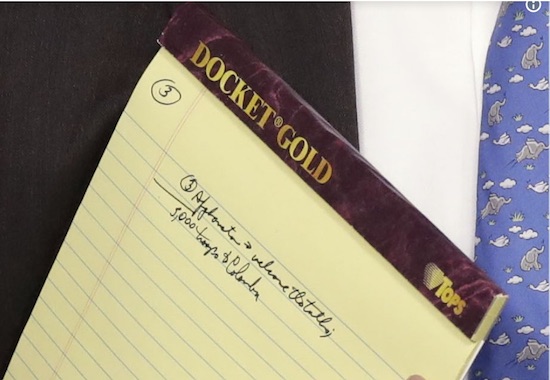

“.. in reopening it for three weeks, does this allow for the confirmation of William Barr as Attorney General?”
As I often point out here, history is a trickster, too. Things fly out of left field from it all the time. Pink elephants, black swans, honeybadgers, World Wars, flash crashes, and Roger Stone. I have a theory that Mr. Stone, in his twisted way, will turn out to be a sort of unlikely hero in this subplot of the Mueller inquisition. How might that work? Despite the attempt to squeeze him on charges that will bankrupt him and send him off to die in the federal cooler, Mr. Stone will do what he said on the courthouse steps: he won’t bear false witness against Mr. Trump. What that really means is something else: he is willing to step into a court-of-law and face down Mr. Mueller’s prosecutors.
Mr. Mueller does not want this case to be tried in court, I assure you. In the event, an awful lot of dark evidence will emerge from the defense side of the room about the criminal malfeasance among the Mueller Team, and their reliance on the Clinton network of fixers, grifters, and rogues who cooked up the years-long Russian Meddling-and-Collusion flimflam in the FBI going way back to the spring of 2016. Mr. Stone’s case is not unlike the case against General Mike Flynn, who was sent to the doghouse for three months in December by Federal Judge Emmet Sullivan to reconsider his guilty plea. Judge Sullivan may know that the charges against Gen. Flynn amount to prosecutorial misconduct by Mueller, and Sullivan is interested in trying the case to see what might come out. It will be March before anyone knows whether Gen Flynn got his mind right in the matter.
[..]I’m wondering about something else. Of course, Mr. Trump eventually caught hell on the government shutdown. But in reopening it for three weeks, does this allow for the confirmation of William Barr as Attorney General? And when that happens, might it change the flow of events in the RussiaGate show?

If Stone’s indictment is any clue, there will be zero collusion reported. Well, at least not with any sort of proof.
• Mueller Investigation Close To Being Completed – Acting AG Whitaker (CNBC)
Special counsel Robert Mueller’s investigation is “close to being completed,” acting Attorney General Matthew Whitaker said Monday. “I hope that we can get the report from Director Mueller as soon as possible,” Whitaker said during a Department of Justice news conference announcing indictments against Huawei officials. While there were reports that the special counsel probe was wrapping up, Whitaker’s remark is the first indication from a Justice Department official suggesting that Mueller could deliver his report soon. Mueller’s team of investigators is examining Russian interference in the 2016 election. The special counsel is also probing for possible collusion by Donald Trump’s campaign and whether or not the president obstructed justice.
The acting attorney general’s comment comes after Roger Stone, a longtime political advisor to President Donald Trump, was arrested in Florida on Friday. Stone faces seven counts, including allegations of witness tampering, obstruction of justice and making false statements to Congress. Whitaker’s appointment as acting attorney general sparked concern that he might try to stifle Mueller’s investigation. Before joining the Justice Department, Whitaker was critical of the special counsel probe. In a 2017 op-ed, Whitaker argued that if Mueller examined the Trump family finances “without a broadened scope in his appointment, then this would raise serious concerns that the special counsel’s investigation was a mere witch hunt.”
Whitaker addressed his critics during the Monday news conference, saying he has now been “fully briefed” on the investigation and is looking forward to Mueller’s report. “I really am not going to talk about an open and ongoing investigation otherwise, but you know, sort of the statements that I made were as a private citizen only with publicly available information,” Whitaker said.

“When asked whether working with WikiLeaks should be considered a crime..”
• Sarah Huckabee Sanders To Media: You’re No Better Than WikiLeaks (VF)
Last week, Roger Stone, one of Donald Trump’s longest and most loyal advisers, was indicted on several counts of lying to investigators regarding his interactions with WikiLeaks, the quasi-journalistic organization accused by U.S. intelligence of being in cahoots with the Russian government. Perhaps most dangerous for the president, the indictment against Stone alleged that a senior campaign official “was directed” by an unknown someone to ask Stone about “additional releases” from WikiLeaks, which had already dumped stolen D.N.C. e-mails all over the Internet. After Stone was arrested by the F.B.I., White House press secretary Sarah Huckabee Sanders was quick out of the gate with the standard statement: “This has nothing to do with the president, and certainly nothing to do with the White House,” she said.
“This is something that has to do solely with that individual, not something that affects us in this building.” But on Monday, as she presided over the first official White House press briefing in 41 days, she was pressed to provide a more detailed response. She denied that the White House and Trump had any contact with WikiLeaks, and brushed off the possibility that Trump would issue Stone a pardon. When asked whether working with WikiLeaks should be considered a crime, however, she went a step further. “I think every single outlet that you all represent looked for and searched for information that WikiLeaks was providing,” she said. “Most of you reported on that information. I think you’re just as accountable as anybody else in that process.” In other words, if seeking information from WikiLeaks is a crime, the media is full of criminals.
In fact, by the end of 2016, certain media outlets engaged in some earnest hand-wringing over whether the extent of their reporting on the leaked WikiLeaks documents, including the e-mails of Democratic officials like John Podesta and Debbie Wasserman Schultz, had thrown the election in Trump’s (and Russia’s) favor. Stone’s connections to the Julian Assange-run organization, however, are of a different nature entirely. Stone, a one-man political goon squad, had long publicly flaunted his connections with WikiLeaks, selling himself to the Trump campaign as someone with inside knowledge of the organization.
Just now: White House on WikiLeaks & Roger Stone pic.twitter.com/AWo0d1i4eI
— Defend Assange Campaign (@DefendAssange) January 28, 2019

This is your future. A bunch of call-center type ops in cheap labor nations will decide, using handbooks, what you are allowed to see.
• Facebook To Create ‘War Room’ To Fight Fake News (G.)
Facebook will tackle political misinformation in the run-up to the EU elections this May with a new “war room” based in Dublin, the company’s incoming communications chief, Nick Clegg, has announced. In his first speech as Facebook’s top public face, Clegg said the company would be setting up an “operations centre focused on elections integrity, based in Dublin, this spring”. The centre will build on the company’s previous experience running an “elections war room” in its US office, where it coordinated efforts to police the platform during the US midterm and Brazilian presidential elections. “This approach will help boost our rapid response efforts to fight misinformation, bringing together dozens of experts from across the company – including from our threat intelligence, data science, engineering, research, community operations and legal teams,” Clegg said.
“They will work closely with the lawmakers, election commissions, other tech companies, academics and civil society groups to continue the fight against fake news, prevent the spread of voter suppression efforts and further integrate the large number of teams working on these important issues across Facebook, Instagram and WhatsApp.” In his speech, made to an audience of European policymakers in Brussels and livestreamed on Facebook, Clegg accepted that the company had erred in the past, but said it was on a path of improvement. “What I have seen in my short time at Facebook is a young company – only 15 years old next month – which has grown at a startling pace, has undoubtedly made mistakes and is now entering a new phase of reform, responsibility and change.”

Why? “Dark energy is evolving – with a density that increases as time passes.”
• Supermassive Black Holes Reveal Universe Expands Faster Than Thought (Ind.)
Supermassive black holes in the depths of space have been used for the first time to measure the universe growing, yielding intriguing results. Astronomers found the universe appears to be expanding faster than previously thought, a discovery that suggests a whole new set of rules is required to understand the cosmos. The rate of universe expansion is known as the Hubble constant, named after the American astronomer who also gave his name to the famous space telescope. It has proved a tricky value to pin down, because while the cosmos has been getting bigger since the Big Bang, the rate seems to vary depending on where astronomers look and how they measure it.
In a new study published in the journal Nature Astronomy, scientists used black holes sitting at the core of distant galaxies as reference points by which to measure the speed of growth. These bodies constantly spew out radiation, placing them among the brightest points in the universe. “Black holes are the most luminous persistent sources of the universe and allow us to measure its expansion rate at very early times,” explained Dr Elisabeta Lusso from Durham University. Using data collected from 1,600 supermassive black holes as the universe expands and they move away from each other, the scientists were able to record the rate of this expansion.
Previous efforts had used the light produced by exploding supernovae to measure the growth of the universe, but such measurements could only go back so far in time. The luminous black holes allowed Dr Lusso and her colleague Dr Guido Risaliti to peer back further, providing a clearer picture of early universe expansion. The discrepancy they recorded matched the contradictory results previously obtained by the European Space Agency and Nasa. These results suggest the early expansion of the universe is different from that predicted by the standard model of cosmology, which describes the age, history and contents of the universe. [..] Dr Risaliti, of the Università degli Studi di Firenze, said if this dark energy is evolving – with a density that increases as time passes – this could provide an explanation for their results.

A land of ordinary thieves.
Dull is the eye that will not weep to see
Thy walls defac’d, thy mouldering shrines remov’d
By British hands
– Lord Byron
• British Museum Chief: Taking The Parthenon Marbles Was ‘Creative’ (G.)
The director of the British Museum has provoked anger by suggesting the removal of the Parthenon marbles from Greece in the 19th century could be seen as “a creative act”. Hartwig Fischer gave an interview to the Greek newspaper Ta Nea in which he ruled out returning the 2,500-year-old sculptures, which many people in Greece and elsewhere regard as stolen. Greece desperately wants the sculptures, popularly known as the Elgin marbles, back but has been rebuffed repeatedly by the British Museum. Asked about the argument that it should be seen more as a rejoining of the sculptures than a return, Fischer said the British Museum offered a different way of interacting with the marbles, “posing different questions because the objects are placed in a new context”.
He added: “We should appreciate this opportunity. You could, of course, be saddened by the fact that the original environment has disappeared. When you move a cultural heritage to a museum, you move it outside. However, this shifting is also a creative act.” The same could be said for the Acropolis Museum created in Athens, said Fischer. “Nothing that we admire at the Acropolis Museum was created for the Acropolis Museum. They are close to the original environment, but they have again moved away from it and have been transformed through this act.”
There are many who will not see the early 19th-century removal from Greece of the marbles by agents of the 7th Earl of Elgin as “creative”. Lord Byron likened it to vandalism, lamenting in verse in Childe Harold’s Pilgrimage: “Dull is the eye that will not weep to see / Thy walls defac’d, thy mouldering shrines remov’d / By British hands.” George Vardas, the secretary of the International Association for Reunification of Parthenon Sculptures, tweeted: “Seriously. What was so creative in the destruction of the temple and looting and pillage of a nation’s keys to its ancient history?” He called it “astonishing historical revisionism and arrogance”, and added: “The imperial condescension of the British Museum knows no bounds.”

Photograph: Matthew Fearn/PA




